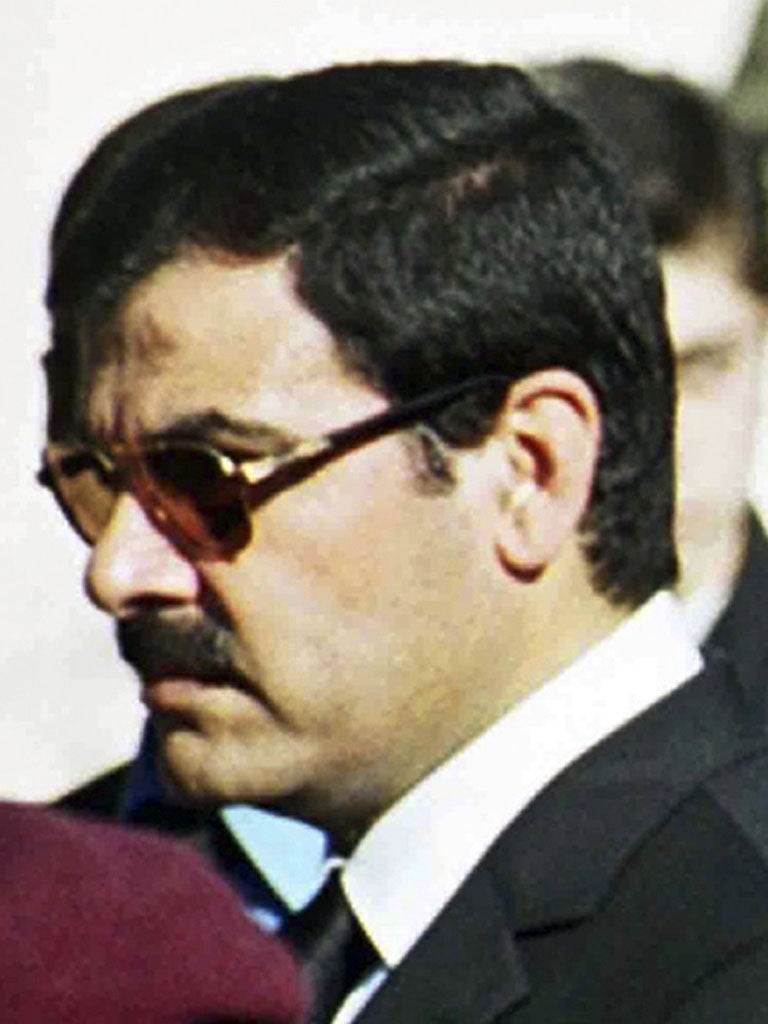General Assef Shawkat: Security chief and linchpin of the Assad regime
He was named as a suspect by the UN in the assassination of the Lebanese PM Rafiq Hariri

General Assef Shawkat, who was killed in a bomb attack at the headquarters of Syria's national security bureau on 18 July, was brother-in-law to the President, Bashar al-Assad, Deputy Defence Minister and a linchpin of the regime. His death, along with two other members of Assad's inner circle, Defence Minister Dawoud Rajha and the Assistant Vice-President, Hassan Turkmani, appears to have dealt a grievous blow to Assad's prospects of remaining in power.
Assef Shawkat was born in 1950 to a middle class Alawite family in the village of Al-Madehleh, Tartus. In 1968 he enrolled in Damascus University to study law and history; his dissertation was on the great Syrian revolt of 1925. He joined the military academy in 1976. Being an Alawite and a Baathist, the two prerequisites of success in the late president Hafez al-Assad's Syria, meant that he found no problem in being accepted. He proved to be a dedicated and intrepid officer who earned respect. Syria's former vice-president Abdul Halim Khadadam described him as a "smart, cultivated and courageous officer with great ambitions". In February 1982 the Hama uprising broke out, provoking a scorched-earth policy; Shawkat was an officer in the notorious Defence Company paramilitary force. He was also thought to be behind many of the regime's clandestine activities outside Syria, which he carried out with brutal discipline. As a reward he was promoted to Colonel and was put in charge of the presidential special protection unit, charged with protecting Bushra al-Assad, only daughter of the president, who was studying to become a pharmacist.
Bushra was considered one of the most eligible women in Damascus. After falling in love with Shawkat she annulled her engagement to Dr Muhssin Belal, Minister of Information and personal doctor to her father.
She decided to marry Shawkat; many commentators expressed surprise given that Shawkat was a young officer of modest means. Her younger brother Basil al-Assad was strongly opposed, believing Shawkat to be too old; he was also a divorced father of five. Basil maintained that although an Alawite, Shawkat was of inferior standing and should never become an in-law; four times he had Shawkat jailed in an attempt to prevent the union.
In January 1994, however, Basil died in a car crash, and a year later Bushra and Shawkat arrived in Italy and announced that they had married. The president brought them back to Damascus and gave them his blessing, promoting Shawkat to the rank of major-general. The couple lived quietly in a rented house in the opulent Mezzeh district of Damascus.
Shawkat became friendly with Bushra's brother Bashar, an ophthalmologist who had returned from London to fill his late brother's position as heir apparent, and Bashar began to rely on him for companionship and security. Having faith in Shawkat's abilities, Hafez instructed him to support Bashar, and by 1998 he was rumoured to have become one of the most powerful men in the country, even if relations with the rest of the family were not always smooth: Bashar's brother Maher allegedly shot him in the stomach in 1999.
Hafez died in 2000 and was succeeded by Bashar, who the following year named Shawkat Deputy Director of Military Intelligence. He was regarded as the main architect of Syria's policy in Lebanon and had a substantial influence on extremist Palestinian groups such as Hamas and Islamic Jihad. After 9/11 he was one of the president's main liaisons to US and European intelligence agencies. In 2005, he became Chief of Military Intelligence; he was named as a suspect in a preliminary UN report on the 2005 assassination of the Lebanese Prime Minister, Rafiq Hariri.
A severe blow was dealt to his status and reputation in 2008 when the military commander of Hizbollah, Imad Mughniyeh, was assassinated in Damascus, and the following July was relieved of his post as head of Military Intelligence and made Deputy Chief of Staff. As the Arab Spring uprising spread to Syria, the US and the EU accused Shawkat of playing a key role in suppressing demonstrations. In January this year he was reported to have been involved in negotiations which led to an unprecedented truce between security forces and the rebel free Syrian army in Zabadani, a mountain resort north-west of Damascus.
In May, opposition activists claimed that he had died after being poisoned by rebels. This proved to be false, but the rebels eventually got their man.
Assef Shawkat, soldier and politician: born Al-Madehleh, Tartus, Syria 15 January 1950; married firstly (five children), secondly Bushra al-Assad (two sons, two daughters); died Damascus 18 July 2012.
Join our commenting forum
Join thought-provoking conversations, follow other Independent readers and see their replies
Comments